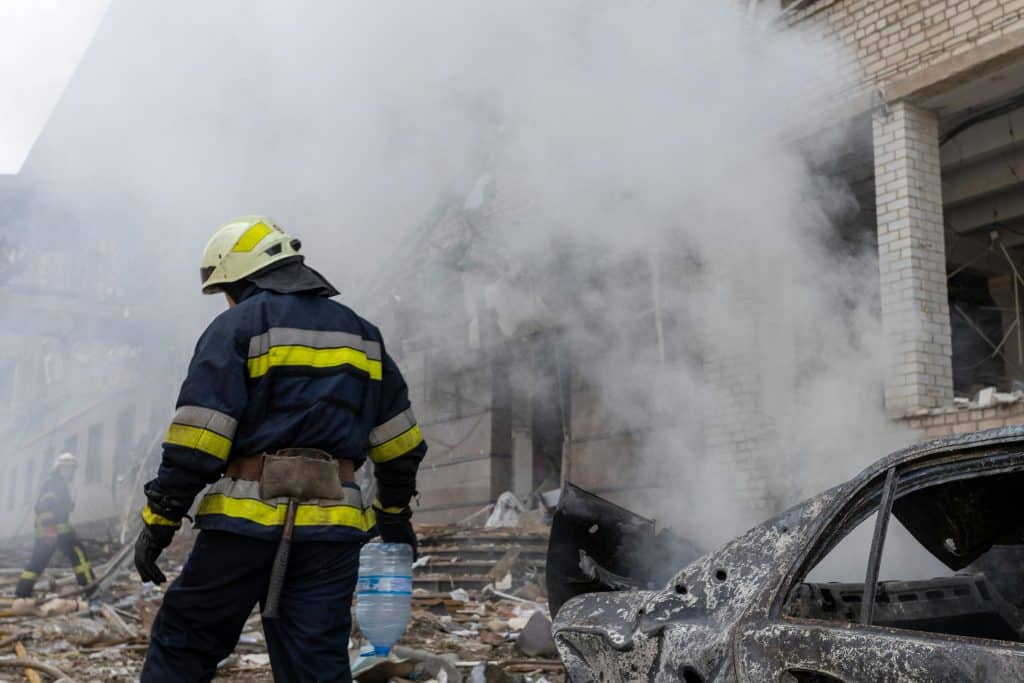Navigating the complex landscape of fire safety legislation can be challenging for both businesses and homeowners. It is crucial to stay updated with the latest changes in regulations and understand what these modifications mean for your safety responsibilities. This post aims to provide a clear breakdown of recent legislative updates and how they impact various stakeholders.
Recent Updates in UK Fire Safety Legislation
In the wake of significant fire-related incidents, such as the Grenfell Tower fire in 2017, there have been substantial reviews and updates to fire safety regulations. These changes aim to enhance building safety standards and ensure a higher level of protection for residents and properties.
1. The Fire Safety Act 2021
The Fire Safety Act 2021 has been introduced to amend the Regulatory Reform (Fire Safety) Order 2005. This Act clarifies that the responsibility for fire safety in buildings containing two or more sets of domestic premises rests with the building owner or manager. Key aspects include:
- Scope of the Fire Safety Order: The Order now explicitly covers the structure, external walls (including cladding, balconies, and windows), and individual flat entrance doors that open into common parts of multi-occupied residential buildings.
- Risk Assessments: Responsible persons are required to assess these parts of the building for fire risks and take necessary measures to mitigate any risks identified.
2. Building Safety Act 2022
The Building Safety Act 2022 introduces broader reforms in building safety standards, focusing on high-rise residential buildings. It emphasizes the importance of managing safety risks from construction through to occupation. Significant changes include:
- New Regulatory Framework: A more stringent regulatory regime for high-risk buildings, which includes rigorous inspection regimes during the design and construction phases.
- Accountability: Clearer lines of accountability, ensuring there’s always a person or entity responsible for safety during the building’s entire lifecycle.
- Resident Engagement: Requirements for developers and building managers to actively engage with residents on safety matters.
3. Updated Standards for Fire Safety Equipment
Updates to standards for fire safety equipment, particularly alarms and extinguishers, have been implemented. These updates ensure that the equipment used in homes and businesses meets the latest safety standards to provide maximum protection.
Impact on Businesses
Businesses must adapt to these changes by ensuring their fire risk assessments are up to date and include all elements as specified by the Fire Safety Act 2021. It’s essential for businesses, particularly those operating in multi-occupied residential buildings, to understand their expanded responsibilities and ensure compliance through thorough risk assessments and regular safety audits.
Impact on Homeowners
For homeowners, particularly those in flats or shared buildings, the new legislation means greater transparency and reassurance about the safety of their homes. Homeowners should expect their building managers to provide regular updates on fire safety measures and compliance with the new laws.
Ensuring Compliance
For Businesses and Building Owners:
- Conduct Regular Fire Risk Assessments: Ensure these include all new areas as required by law.
- Update Safety Protocols: Based on the latest legislation, update your safety protocols and ensure all staff are trained accordingly.
- Engage a Fire Safety Professional: Consider consulting a certified fire safety professional to help navigate these changes and implement the necessary adjustments.
For Homeowners:
- Stay Informed: Keep abreast of the information provided by your building management regarding fire safety compliance.
- Participate in Safety Meetings: Actively participate in any meetings or forums that discuss building safety to ensure your voice is heard.
Keeping up with changes in fire safety legislation is paramount for ensuring the safety and compliance of properties. Both homeowners and business owners need to be proactive in understanding and implementing these changes. By staying informed and engaged with fire safety practices, you can help ensure not just compliance with the law, but the safety and well-being of all occupants.
For expert advice on fire prevention and protection, contact Martyn Young Fireproofing Consultancy on 07585 896648


